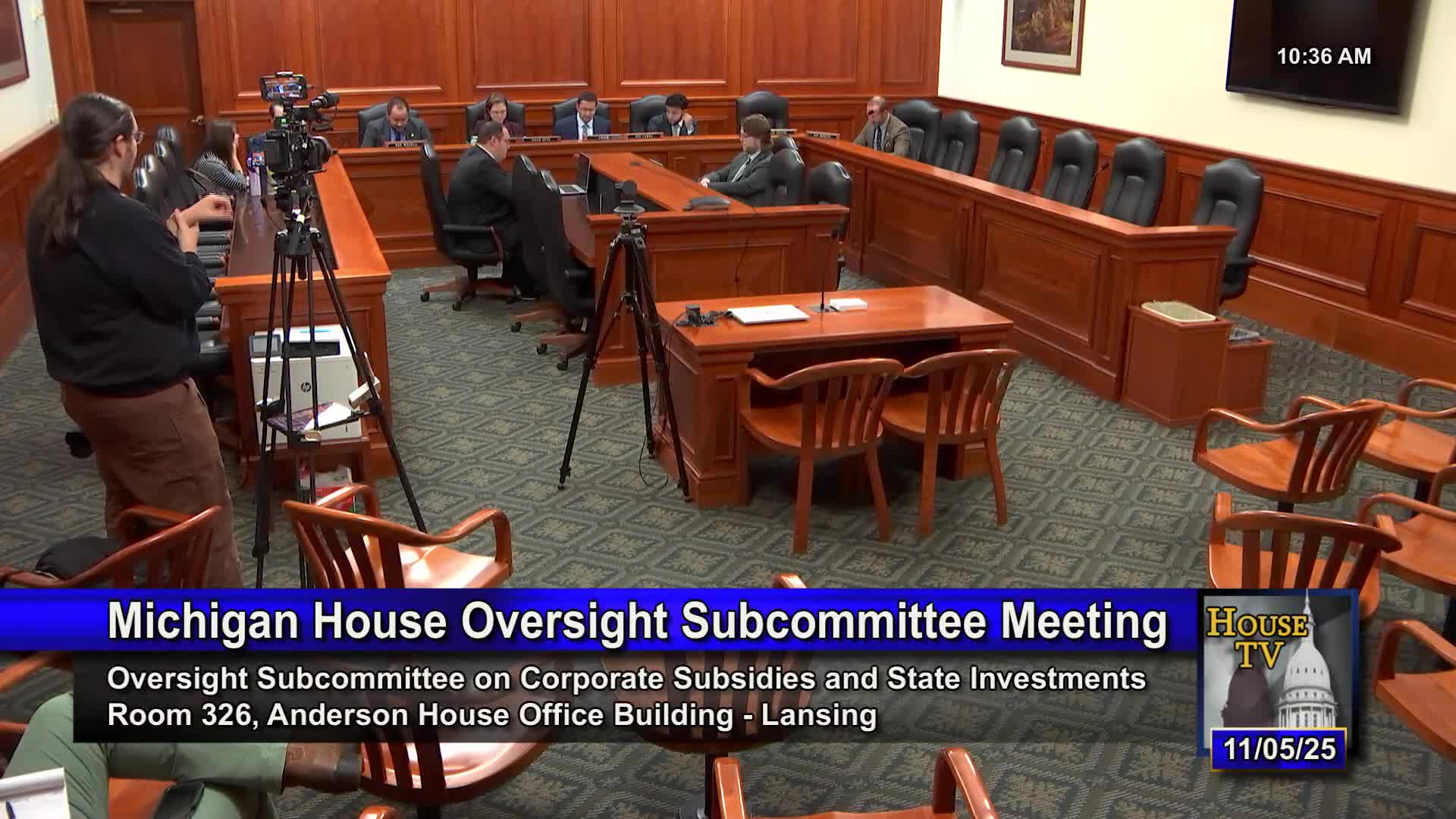Witness calls Goshen EV battery deal "corrupted," committee highlights $23.6 million SSRP disbursement
Get AI-powered insights, summaries, and transcripts
Subscribe
Summary
Ambassador Joseph Sella testified that the Goshen EV battery project was marked by secrecy, insufficient due diligence and ties to Chinese entities, urging clawbacks and reimbursement for Green Charter Township. Committee members questioned MEDC transparency and the disposition of $23.6 million dispensed from the Strategic Site Readiness Program.
Ambassador Joseph Sella told the House Oversight Subcommittee on Corporate Subsidies and State Investments that the Goshen EV battery deal was “one of the worst examples of state driven economic development in the history of the state of Michigan,” blaming a lack of transparency and insufficient vetting for the project's failure.
Sella, testifying as a private citizen and former ambassador, said the project was backed by state officials and economic development partners and alleged ties between the company behind the U.S. operation and entities aligned with the Chinese Communist Party. He urged the committee to pursue recovery of state funds and to make Green Charter Township whole for legal expenses incurred fighting the project.
The committee focused on the disposition of state dollars. Chair Cara summarized that $125,000,000 in critical infrastructure project (CIP) funding was never appropriated to Goshen, while of a separate $50,000,000 line for the Strategic Site Readiness Program (SSRP), $23,600,000 was appropriated and dispersed to Goshen. “By this point, it seems like that is the main question in terms of money that has gone to them,” Chair Cara said during questioning.
Sella walked the committee through what he described as a compressed timeline: the project's announcement in fall 2022, quick local tax exemptions, reporting that the deal used secret code names and NDAs, narrow public votes on funding in spring 2023, and escalating local protests that culminated in litigation and recalls of some local officials. He said permitting and site-preparation work, including tree clearing, began before approvals from the Department of Environment, Great Lakes, and Energy (EGLE).
On how the $23.6 million was used, Sella testified he believed funds went to “land acquisition, site prep, and engineering work,” but said the engineering work appeared minimal and that the land price paid to acquire the site looked “grossly inflated.” He estimated township legal fees as likely “south of a million dollars” but said the tally was ongoing.
Committee members asked whether the state could recover dispersed funds. Sella said recovery was uncertain, noting parties often pursue litigation or settlement and that Goshen could be supported by an overseas parent or related entities. He suggested state-level vetting like a CFIUS-style review for deals involving adversarial regimes and offered to help craft a vetting checklist.
Sella also recommended structural changes to state economic development practice, saying the Michigan Economic Development Corporation (MEDC) had lacked sufficient financial oversight and due diligence. "If I had a vote... the MEDC should be shuttered," he said, adding that functions could be consolidated inside the governor's office with smaller, expert staff and clearer transparency and stress testing.
The committee recorded one procedural action at the start of the meeting: Minority Vice Chair Wegela moved to approve the Oct. 29 minutes without objection, an action the chair ordered approved. The committee took no further formal votes on policy or funding during the hearing and adjourned after questioning concluded.
The hearing did not produce immediate formal directions to recover funds; members repeatedly pressed for clarity about where state dollars were spent and whether clawbacks were feasible. The committee discussed possible next steps including litigation by MEDC, oversight hearings, and drafting stronger vetting procedures for future economic development deals involving foreign-linked entities.
The testimony and questioning underscore the committee's priorities: tracing the flow of SSRP funds, clarifying MEDC decision-making and due diligence practices, and evaluating how the state can prevent similar outcomes on future projects.
